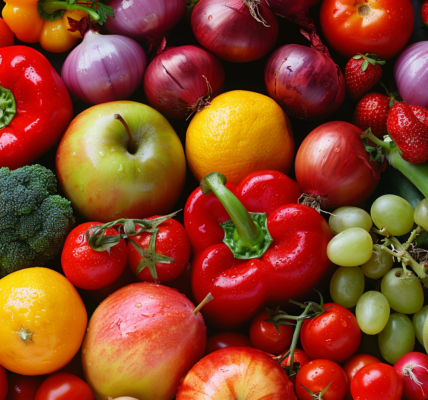The April issue is here featuring Coco Gauff
7 Of The Most Common Nutrition Myths, Debunked
April 3, 2024
We may earn a commission if you buy something from any affiliate links on our site. Cutting out carbs or opting to eat “little and often” are just two examples of nutrition fads that have been hugely popular in recent years. But which fads are rooted in fact? Often, eating healthily is simpler than you think. Below, we spotlight seven commonly held nutrition myths that aren’t actually true.
Heard the myth about eating late at night making you more likely to gain weight? That’s not necessarily the case. Studies indicate that calorie intake is the decisive factor here, not the timing of a meal. However, there is some evidence to suggest that eating or snacking late into the evening makes you more likely to choose unhealthy foods.
A “low-fat” label in no way indicates that a food has health benefits. Studies show that many low-fat products contain more sugar or artificial additives compared with food that has regular fat content. For example, “light” products often contain sweeteners used to boost flavor (just look to greek yogurt). It is worth looking out for what type of fat a food contains, as well as the overall quality of the food. It should have as high a proportion of unsaturated fatty acids as possible. As a rule, the fewer ingredients a product contains, the less processed it is and therefore the healthier it is.
Cutting out carbs is one of the oldest tricks in the book, but it isn’t necessarily the right thing to do for your health. Not all carbohydrates are created equal, as the German Nutrition Society explains. Complex carbohydrates–such as those found in nutrient-rich products like wholegrain products and fruit and vegetables–keep you full for longer. They also counteract cravings and strengthen the intestinal flora.
Another myth is the notion that if you follow a vegan diet, sooner or later you will suffer from a nutritional deficiency. In fact, a balanced vegan diet can provide all the necessary nutrients like meatless protein. The important thing is to incorporate a variety of healthy foods. Vitamin B12 is mainly found in animal products and omega-3 fatty acids are mainly found in fatty fish, so it’s important to incorporate these elements into your diet through vegan-friendly alternatives, and to consider supplements where necessary. Flaxseed, chia seeds, and walnuts are plant-based sources of the omega-3 fatty acid ALA. Algae oil can serve as a substitute for fish oil.
You should have protein straight after workin





